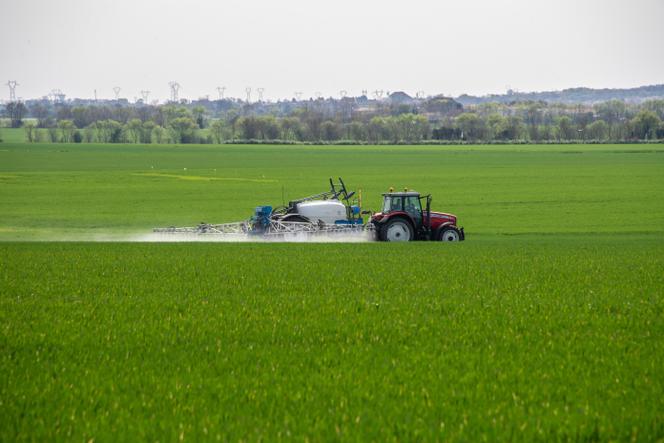


French authorities and water managers have come to the brink of an unprecedented situation: A majority of French people could soon have drinking water that doesn't meet quality criteria. The problem lies in a molecule, trifluoroacetic acid (TFA), a currently unregulated "forever chemical." It has poorly documented health effects, and is contaminating water resources in France and Europe.
The TFA that is found in water is notably produced by the degradation of the pesticide flufenacet. Mainly used to treat cereal crops (particularly wheat and barley), flufenacet is one of the best-selling herbicides in France. Its sales almost doubled between 2019 and 2022 (the latest year for which data is available), reaching over 900 tonnes a year.
However, on September 27, flufenacet was recognized as an endocrine disruptor by the European Food Safety Authority (EFSA). This requalification should automatically lead French authorities to consider TFA to be a "relevant" metabolite in drinking water – in other words, a potentially dangerous one. Indeed, according to the procedure put in place by the French Agency for Food, Environmental and Occupational Health & Safety (ANSES), when an active substance is classified as an endocrine disruptor, its metabolites must, by default, be considered to be "relevant," and therefore subject to a threshold that must not be exceeded.
This limit is set at 0.1 micrograms per liter (µg/L). Above this level of concentration, the water is declared to be "non-compliant," even though there is no proven health risk. Under French law, local authorities can obtain an exemption to distribute non-compliant water to users, for a period of three years. This exemption is only renewable once: After six years, the water must once again become compliant before it can be distributed.
According to modeling carried out by the ANSES, on behalf of the EFSA as part of the flufenacet assessment procedure, it has been known since 2017 that the herbicide's degradation leads to TFA concentrations of up to 10 µg/L, up to 100 times higher than this limit. The NGO coalition Pesticide Action Network (PAN) Europe carried out drinking water tests, collecting samples from 10 European Union (EU) countries, including France, between May and June: The compliance limit was exceeded in 86% of cases, notably in three out of four water samples tested in France. A sample taken from the tap water that supplies a third of Paris showed levels in excess of 2 µg/L – 20 times the quality threshold.
You have 68.45% of this article left to read. The rest is for subscribers only.
